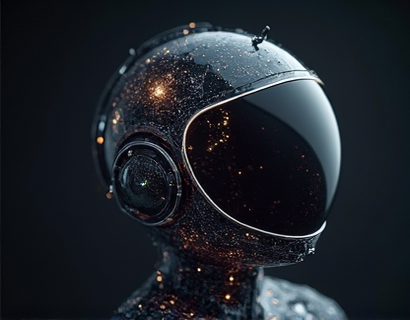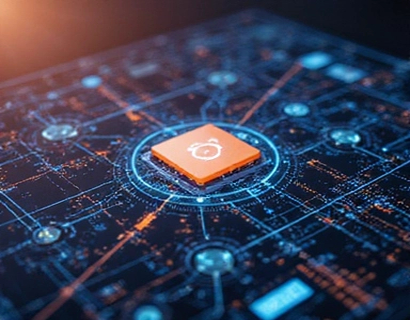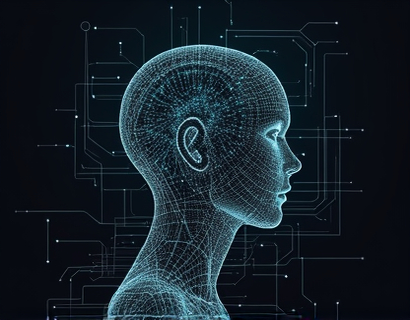Enhancing Childhood Creativity and Emotional Growth with Personalized AI Companions
In the rapidly evolving landscape of technology, the integration of Artificial Intelligence (AI) into childhood development tools presents a groundbreaking opportunity to enhance creativity and emotional growth in children. Personalized AI companions, designed to interact with young minds, offer a unique and innovative approach to playtime, learning, and emotional development. This article delves into the transformative potential of these digital companions, exploring how they can foster imaginative exploration, social skill development, and emotional intelligence in a safe and nurturing environment.
The Role of AI in Childhood Development
AI technology, when tailored for children, can serve as a dynamic and responsive companion that adapts to the individual needs and interests of each child. Unlike traditional toys or media, AI companions can learn from interactions, evolving to provide more relevant and engaging experiences over time. This adaptability is crucial for supporting the diverse and rapidly changing developmental stages of childhood.
Fostering Creativity Through Personalized Interactions
Creativity is a fundamental aspect of childhood development, essential for problem-solving, critical thinking, and innovation. Personalized AI companions can significantly enhance creative play by offering open-ended scenarios and prompts that encourage imaginative thinking. For instance, an AI companion might suggest building a fantastical city, creating characters with unique abilities, or solving puzzles in unconventional ways. These interactions not only stimulate creativity but also provide a sense of accomplishment and joy as children see their ideas come to life through the AI's responsive nature.
Emotional Intelligence and Social Skills Development
Emotional intelligence and social skills are equally vital for a child's well-rounded development. Personalized AI companions can play a pivotal role in nurturing these areas by simulating social interactions and providing emotional support. Through conversations, the AI can help children understand and express their emotions, recognize the feelings of others, and develop empathy. For example, if a child expresses sadness, the AI might respond with comforting words and suggest activities to improve their mood, such as drawing or playing a game. These interactions teach children valuable lessons about emotional regulation and social interaction in a safe and non-judgmental space.
Creating a Safe and Nurturing Environment
One of the most significant advantages of personalized AI companions is the ability to create a secure and controlled environment for children to explore and learn. Unlike the unpredictable nature of the real world, AI companions can be programmed to ensure safety, privacy, and appropriateness in all interactions. Parents and guardians can rest assured that their children are engaging in positive and constructive activities, free from harmful content or inappropriate influences. This safety net allows children to take risks, make mistakes, and learn from them without fear of negative consequences.
Personalization and Individualized Learning
Every child is unique, with different interests, strengths, and learning styles. Personalized AI companions leverage advanced algorithms to tailor experiences to each child's individual profile. By analyzing interactions, the AI can identify a child's preferences and adapt the content and activities accordingly. For instance, a child who shows a keen interest in animals might receive stories, games, and puzzles centered around wildlife, thereby enhancing engagement and learning. This level of personalization ensures that each child receives the most relevant and beneficial experiences, maximizing the potential for growth and development.
Encouraging Imaginative Exploration
Imagination is the cornerstone of creativity, and personalized AI companions can be powerful tools in fostering this essential skill. By presenting endless possibilities and scenarios, AI companions encourage children to think outside the box and explore their creative potential. For example, an AI might propose a journey to a magical forest, where children can encounter mythical creatures, solve mysteries, and build their own stories. These immersive experiences not only spark creativity but also enhance cognitive functions such as memory, attention, and problem-solving.
Supporting Emotional Expression and Understanding
Emotional expression and understanding are critical components of emotional intelligence. Personalized AI companions can facilitate this process by providing a safe space for children to express their feelings and thoughts. Through natural language processing, the AI can recognize and respond to a child's emotional state, offering support and guidance. For instance, if a child is feeling anxious, the AI might suggest relaxation techniques, such as deep breathing exercises or visualization, to help manage the emotion. These interactions help children develop a vocabulary for their emotions and learn healthy coping mechanisms.
Enhancing Social Skills Through Role-Playing
Social skills are best developed through interaction and practice. Personalized AI companions can simulate social scenarios, allowing children to role-play different roles and situations. This practice is invaluable for developing communication skills, understanding social cues, and building confidence in social settings. For example, the AI might set up a scenario where the child plays the role of a teacher and interacts with virtual students, learning how to give instructions, manage a classroom, and handle challenging behaviors. These simulations provide a low-stakes environment for children to experiment and improve their social abilities.
Parental Involvement and Guidance
While personalized AI companions offer numerous benefits, the role of parents and guardians remains crucial in guiding and supporting their children's development. Parents can engage with the AI alongside their children, participating in activities and discussions to deepen the learning experience. This shared engagement not only strengthens the parent-child bond but also allows adults to monitor and guide the child's interactions, ensuring they remain positive and educational. Additionally, parents can use insights provided by the AI to better understand their child's interests and emotional needs, enabling more targeted support and encouragement.
Balancing Screen Time with Real-World Experiences
While personalized AI companions can significantly enhance childhood development, it is essential to maintain a balance between screen time and real-world experiences. Over-reliance on digital devices can limit physical activity, social interaction, and exposure to the natural environment. Parents should aim to integrate AI companions as one part of a well-rounded developmental approach, complementing traditional play, outdoor activities, and face-to-face interactions. This balanced approach ensures that children benefit from the technological advancements while still developing essential skills in the physical world.
Future Prospects and Considerations
As AI technology continues to advance, the potential for personalized companions to enhance childhood creativity and emotional growth is vast. Future developments may include more sophisticated emotional recognition, deeper integration with educational curricula, and enhanced collaboration with educators and healthcare professionals. However, it is crucial to approach these advancements with caution, ensuring that ethical standards are upheld and that the technology serves the best interests of children. Ongoing research and collaboration among technologists, educators, and child development experts will be key to realizing the full potential of personalized AI companions in childhood development.
Conclusion
Personalized AI companions represent a revolutionary tool in the realm of childhood development, offering a unique blend of creativity, emotional growth, and social skill development. By providing tailored, interactive experiences in a safe and nurturing environment, these digital companions can significantly enhance a child's overall well-being and readiness for the challenges of the future. As parents and guardians, embracing this technology with a thoughtful and balanced approach can lead to profound and positive outcomes for the next generation.











































